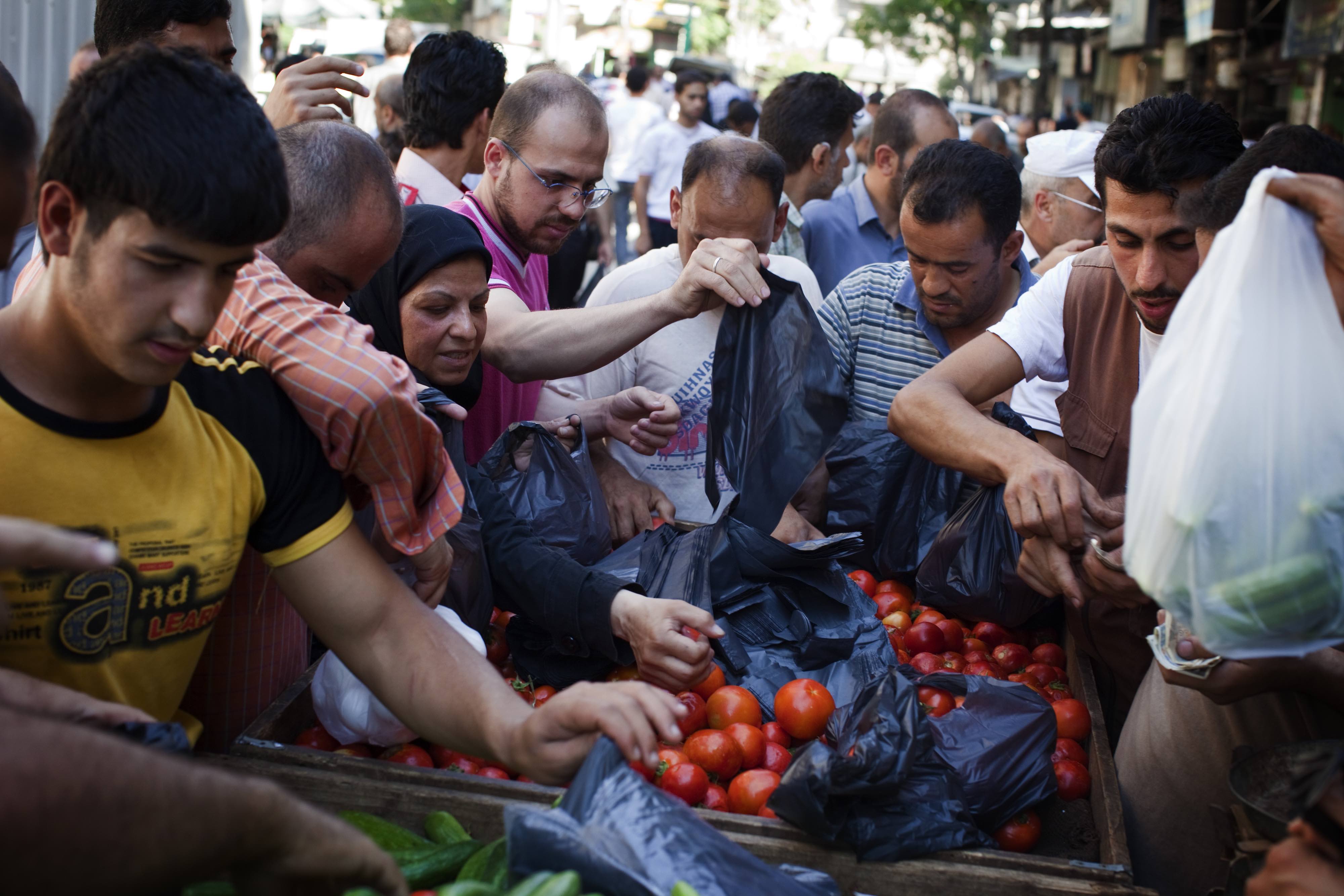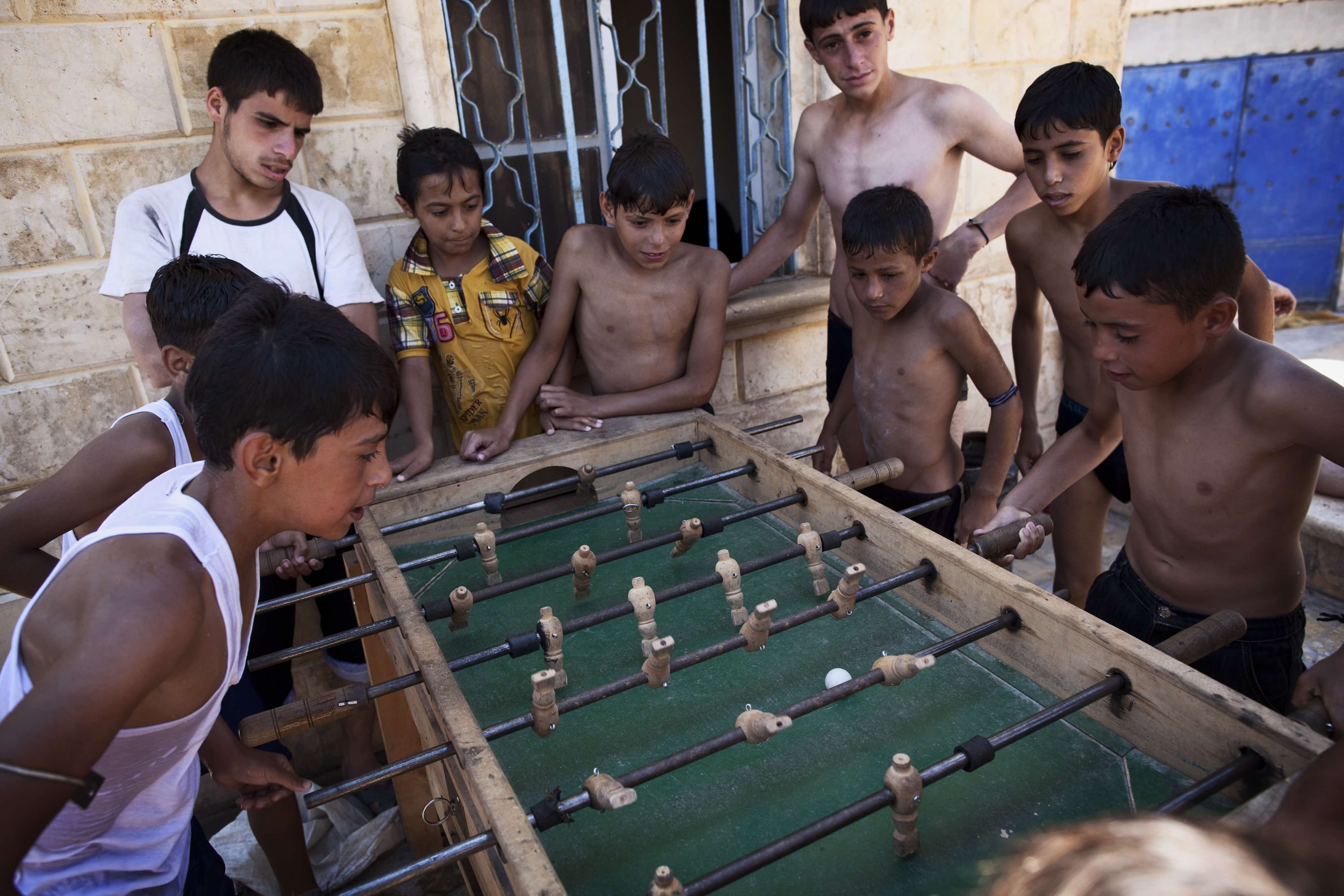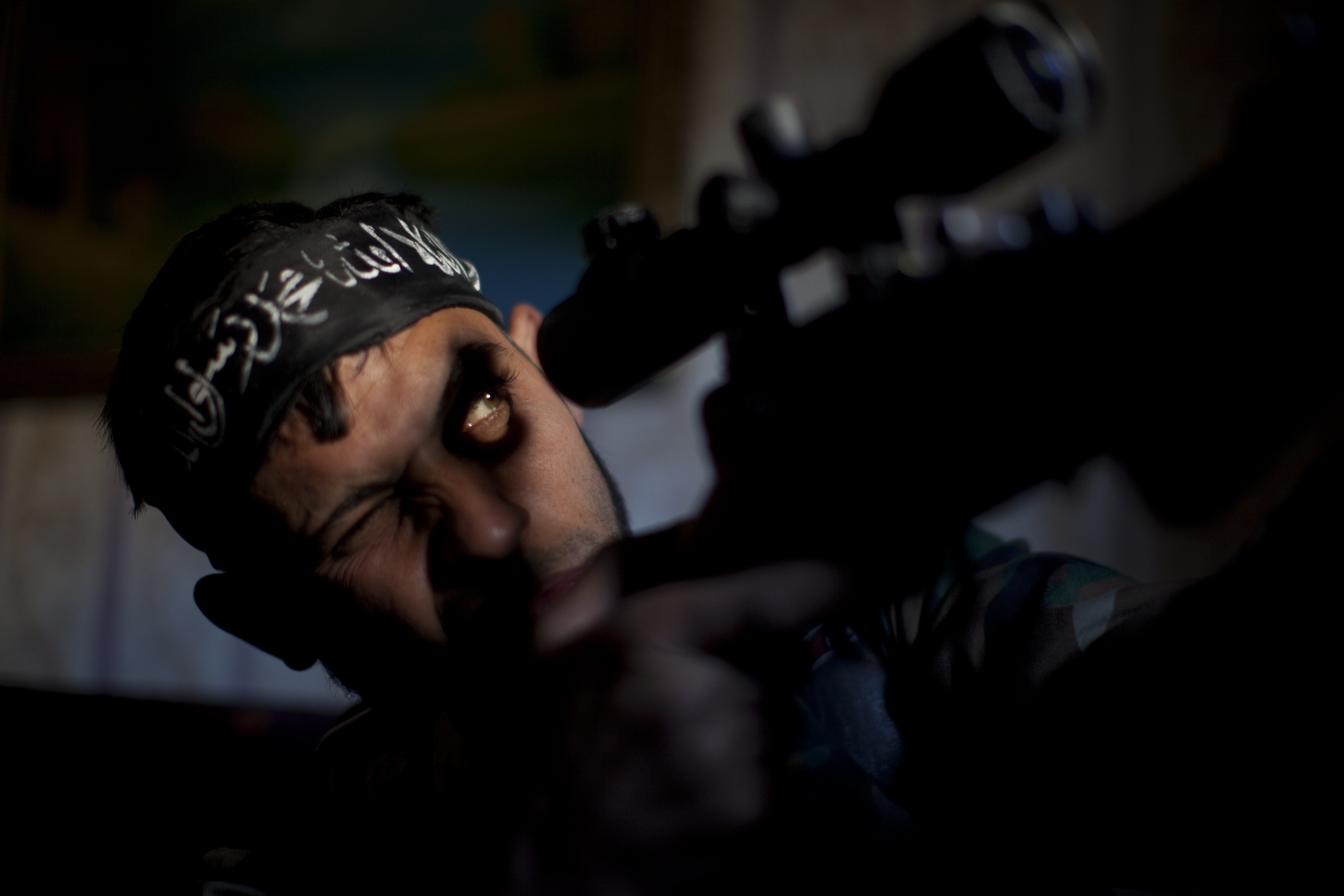People often ask me how I prepare to cover a war. Physically, I try to stay in shape, because I know I’ll be running with heavy equipment, a bullet-proof vest and a helmet. Being able to move quickly might save my life. When I pack my bags, I keep things pretty spartan. Aside from all the photography equipment, I always take a sleeping bag, a flashlight, a knife – and of course, ear plugs. The pragmatic preparations are pretty cut and dry, but mentally and emotionally there is no preparation. Even with experiences in war zones, certain scenes always leave a lasting impression.
When I first went to Syria, we were welcomed by the guerillas because they wanted us to show the rest of the world what the government was doing. Over time, it’s become harder to gain access because some people have seen that the presence of journalists hasn’t helped their situation. In general, I’ve found Syrians incredibly hospitable, and that goes for the guerrillas too. It’s easy to forget that before the war, many of them were bakers, teachers or shop owners who simply felt compelled to take up arms. Because they weren’t professional soldiers, I think they felt a certain kinship with guys like me, a kinship that was strengthened because we shared food and shelter.
I believe the only way to tell the story of a war is through the personal histories of the people who suffer through it, because it’s easy to forget that wars are fought and experienced by people like you and me. A good example was a man named Ibrahim Qashush, a forty-two-year-old firefighter, husband and father of three. During the demonstrations that started the revolution he wrote a couple of anti-government songs. Not long after, they found his body floating in the Orontes river with the vocal chords torn out of his throat. The government of Bashar al-Assad thought they could literally silence the revolution, but it had the opposite effect. Now, every Friday after prayers, two boys named Abderraman and Asma lead the protests.


Getting the human stories is often complicated by the conditions of war. The longer the conflict goes on, the more dangerous it has become for foreign observers. When guerrilla groups from Al Qaeda got involved the threat of kidnapping shot up, so now we can’t go anywhere without a specially assigned guard detail. My nights are usually spent editing and sending photos to HQ, if the internet is working. One surprising upside is that the food is pretty good in Syria because a lot of it comes in from Turkey.


I’m often afraid when I work, but I look at fear as a defence mechanism that allows me to know how far I can go before things become too dangerous. All conflicts come with their own unique set of risks, but the most difficult thing to deal with, by far, is the pain of others. I encounter pain everywhere in Syria, the hospitals, the funerals, the refugee camps, and it never gets any easier to witness.
Despite the emotional toll, I love my job. I love that it lets me travel, get to know other cultures and act as a witness to events that influence world history. Of course, it’s very difficult, and when I’m not working I like to just spend time at home, resting, eating well, and seeing friends. I don’t find it difficult to reintegrate into ‘normal’ life, but I do find, after spending some time at home, I get an itch to go back to Syria.






JM Lopez’s work in Syria has been shortlisted in the Lifestyle category 2015 Sony World Photography Awards.
This article originally appeared in Huck 41: The Documentary Photography Special in from November 2013.
Latest on Huck

Bernie Sanders introduces Clairo at Coachella, urging young Americans to “stand up for justice”
Coachella charmed — The Vermont Senator praised the singer-songwriter for her efforts in raising awareness of women’s rights issues and Gaza.
Written by: Isaac Muk

The Changing Face Of Brooklyn, New York’s Most Colourful Borough
After three decades spent capturing stories around the world, Magnum Photographer Alex Webb finally decided to return home to Brooklyn – a place that champions chaos, diversity and community spirit.
Written by: Alex Webb / Magnum Photos

The mundane bliss of New York’s subways in the ’70s
NYC Passengers 1976-1981 — During a very different decade in NYC, which bounced between rich creativity and sketchiness, photographer Joni Sternbach captured the idiosyncratic isolation found on its rail networks.
Written by: Miss Rosen

Analogue Appreciation: lullahush
Ithaca — In an ever more digital, online world, we ask our favourite artists about their most cherished pieces of physical culture. Today, it’s Irish retro-futurist lullahush.
Written by: lullahush

Spyros Rennt captures connection and tenderness among Berlin’s queer youth
Intertwined — In the Greek photographer’s fourth photobook, he lays out spreads of togetherness among his friends and the German capital’s LGBTQ+ party scene.
Written by: Isaac Muk

The rebellious roots of Cornwall’s surfing scene
100 years of waveriding — Despite past attempts to ban the sport from beaches, surfers have remained as integral, conservationist presences in England’s southwestern tip. A new exhibition in Falmouth traces its long history in the area.
Written by: Ella Glossop
